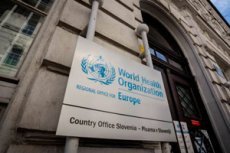
12 June 2024, 13:56
世卫组织将欧洲每年 270 万人死亡归咎于四大行业——烟草、超加工食品 (UPF)、化石燃料和酒精,并指责它们阻碍可能损害其利润的公共政策。
世界卫生组织欧洲区主任汉斯·克鲁格在一份声明中表示:“这四个行业每天在我们地区造成至少7000人死亡。”欧洲区涵盖中亚等53个国家。
世卫组织的报告称,这些行业部门合并为少数跨国公司“使它们能够对其经营所在的政治和法律环境施加重大影响,并抵制可能影响其利润率的公共利益监管”。
该组织表示,该行业的策略包括通过有针对性的营销策略剥削弱势群体、误导消费者以及对其产品的好处或环保资质做出虚假声明。
世卫组织补充道:“这些策略威胁着过去一个世纪以来公共卫生取得的成果,并阻碍各国实现其健康目标。”
世卫组织表示,行业游说阻碍了应对心血管疾病、癌症和糖尿病等非传染性疾病的努力。
据世界卫生组织统计,欧洲近60%的成年人和三分之一的儿童超重或肥胖。
根据2017年的最新数据,欧洲五分之一的心血管疾病和癌症死亡是由于不健康的饮食习惯造成的。
世卫组织呼吁各国加强对不健康产品营销、垄断行为和游说行为的监管,以打击这种现象。
克鲁格说:“必须始终把人放在第一位,利益放在第一位。”
《世卫组织欧洲区域非传染性疾病的商业决定因素》报告可在世卫组织网站上查阅。

